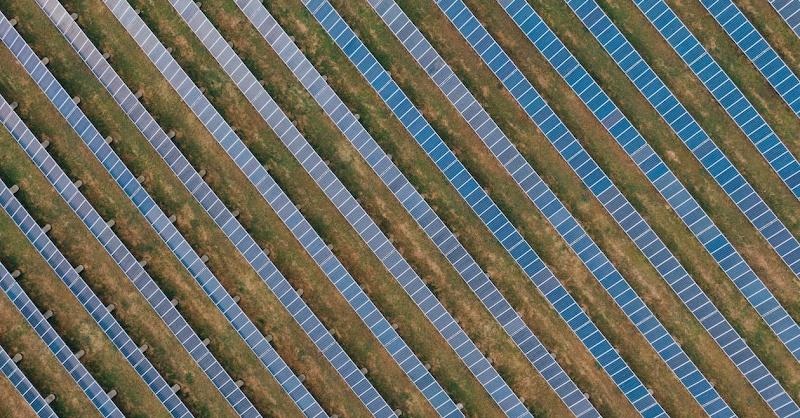This article examines the concept of leasing farmland as a sustainable investment. It explores the benefits of this practice, such as increased profitability and long-term environmental stewardship.
The discussion also covers strategies for finding reliable and sustainable tenants, as well as maximizing profitability through smart lease agreements.
Additionally, it addresses potential risks and considerations associated with farmland leasing.
By adopting an analytical and data-driven approach, this article provides an objective analysis of the topic at hand.
Benefits of Leasing Your Farm Land
Thinking to lease your farm land? The potential for generating a steady income stream without the need for active farming involvement sure is intriguing. Leasing allows landowners to capitalize on increased flexibility, as they can lease their land to farmers or agricultural businesses while retaining ownership rights. This arrangement provides opportunities for passive income, allowing landowners to earn money with minimal effort or time commitment.
According to data from the United States Department of Agriculture (USDA), leasing farmland has become a popular option among landowners in recent years. The USDA’s National Agricultural Statistics Service reported that 39% of all farmland in the United States was leased in 2017, indicating a significant reliance on leasing as an avenue for financial gains.
Overall, leasing farmland presents an attractive opportunity for individuals seeking passive income and increased flexibility in managing their agricultural assets.
Finding Reliable and Sustainable Tenants
To ensure the long-term viability of agricultural operations, it is crucial to identify tenants who are both dependable and committed to sustainable farming practices. Tenant screening and lease management play a significant role in achieving this goal.
Effective tenant screening involves conducting thorough background checks to assess the financial stability, experience, and track record of potential tenants. This process helps landowners select tenants who have the necessary skills and resources to efficiently manage the farmland.
Additionally, assessing a tenant’s commitment to sustainable farming practices is essential for preserving soil health, reducing environmental impacts, and promoting long-term sustainability.
Implementing lease management strategies that include clear expectations regarding sustainable farming practices can help maintain a healthy relationship between landowners and tenants while ensuring the responsible use of farmland resources.
Maximizing Profitability Through Smart Lease Agreements
Maximizing profitability in agricultural operations can be achieved through the implementation of strategic lease agreements that foster efficient resource utilization and incentivize productivity. Smart lease negotiations and lease terms optimization play a crucial role in this process.
By engaging in smart lease negotiations, farmers can negotiate favorable terms that align with their production goals and financial objectives. This may include negotiating lower rental rates or incorporating performance-based incentives to encourage higher productivity levels.
Additionally, optimizing lease terms involves carefully considering factors such as the duration of the lease, rent escalation clauses, maintenance responsibilities, and termination provisions. Analyzing historical data on crop yields, market conditions, and input costs can inform these negotiation strategies and lead to more profitable outcomes for both landowners and tenants.
Overall, implementing strategic lease agreements through smart negotiations and optimized terms is essential for maximizing profitability in agricultural operations.
Long-Term Sustainability and Environmental Stewardship
The promotion of long-term sustainability and environmental stewardship in agricultural operations requires a comprehensive approach that integrates efficient resource management, conservation practices, and adherence to environmental regulations.
Long-term agricultural practices aim to ensure the preservation of natural resources for future generations while meeting the increasing demand for food production.
Conservation agriculture techniques play a crucial role in achieving these objectives by minimizing soil erosion, enhancing soil health, and optimizing water use efficiency. Such techniques include reduced tillage or no-till farming, crop rotation, cover cropping, and integrated pest management.
These practices not only improve soil structure and fertility but also reduce greenhouse gas emissions and mitigate climate change impacts. Additionally, they contribute to the overall resilience of agricultural systems by conserving water resources and promoting biodiversity.
Adopting these sustainable practices can lead to increased productivity, profitability, and ecological resilience in agricultural operations.
Risks and Considerations in Farm Land Leasing
Risks and considerations associated with farmland leasing can impact the long-term viability of agricultural operations. Farmers and landowners need to be aware of the leasing regulations and understand their implications. Compliance with these regulations ensures that both parties are protected legally, financially, and environmentally.
Land maintenance also plays a crucial role in mitigating risks associated with leasing farmland. Regular monitoring and maintenance activities such as soil testing, pest control, and irrigation management are necessary to maintain the productivity of leased land.
Additionally, having clear agreements on responsibilities for property maintenance between landlords and tenants can help minimize disputes and ensure proper care of the land.

